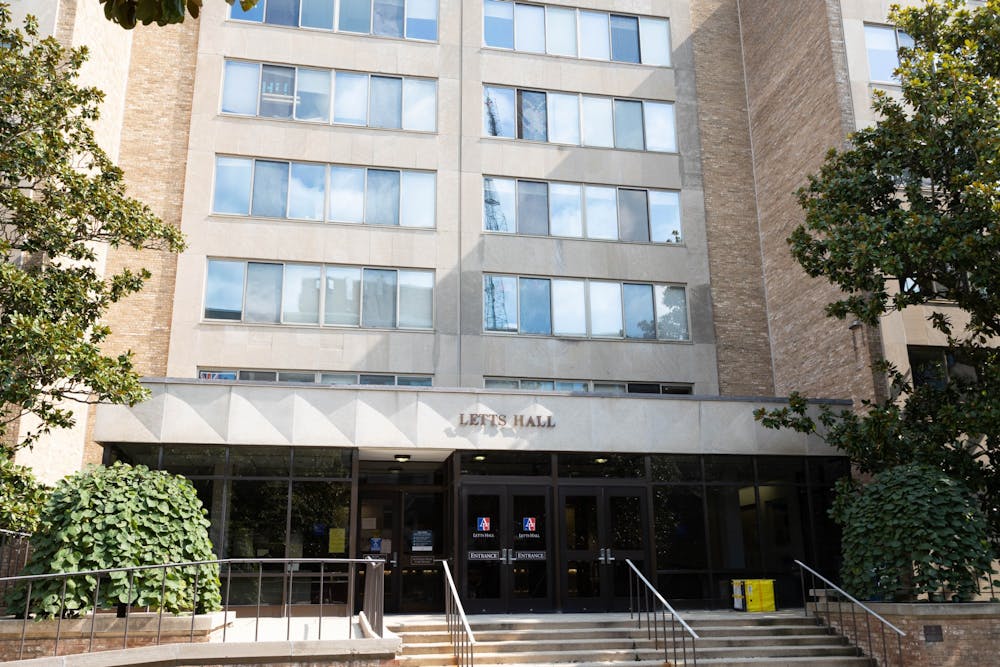Housing and Residence Life raised the hourly wage for student desk receptionists working night shifts from $15.20 to $16.70 following months of student pressure.
Dana Larsen, the assistant director for residence life, said the night pay differential would last only for the spring semester in a Jan. 20 email to residence hall desk receptionists. The pay differential applies to shifts worked between 12 a.m. and 7 a.m., Larsen said in an email obtained by The Eagle.
Desk receptionists typically must work at least four of their required 10 hours a week at night, said Gavin Meyer, a senior in the School of Public Affairs, who has been a desk receptionist since August 2021.
The pay raise follows an October letter desk receptionists sent HRL demanding better pay and working conditions, citing safety and COVID-related concerns. The letter sparked three meetings between the administration and student workers to discuss the demands, Meyer said.
During the spring 2021 semester, desk receptionists made $18 an hour for night shifts after limited operations in residence halls left spare money in the budget, the University said at the time. The differential ended at the start of the fall semester, sparking protest.
Larsen wrote that the University identified extra funds in the spring 2022 semester budget, enabling a pay increase for night desk receptionists, in the Jan. 20 email. Elizabeth Deal, the assistant vice president for community and internal communication, told The Eagle in an email that “lower than expected desk receptionist coverage” made the change possible for the spring semester.
Meyer said that although the pay raise was an improvement, it was still insufficient. He helped lead the desk receptionists’ movement in the fall by writing the letter of demands and gathering 37 signatures from other desk receptionists.
HRL told desk receptionists a wage increase was not possible due to budget limitations, but the department could consider a change in the next biannual budgeting process, Meyer said.
Desk receptionists also expressed safety concerns after several desk receptionists who lived off-campus said they were followed home after night shifts. None of the letter’s other demands have been met, Meyer said, and many student workers opted to quit.
“It’s just a bad place to work,” Meyer told The Eagle. “You can’t really get in touch with your employer very well if there’s a problem. That disconnect is pretty big.”
Lisa Freeman, the director of residence life, directed The Eagle to Deal for comment.
Deal said the University will conduct “an updated envisioning of desk coverage including utilizing complex-wide desk arrangements and benchmarking against other institutions” over the next several months.





